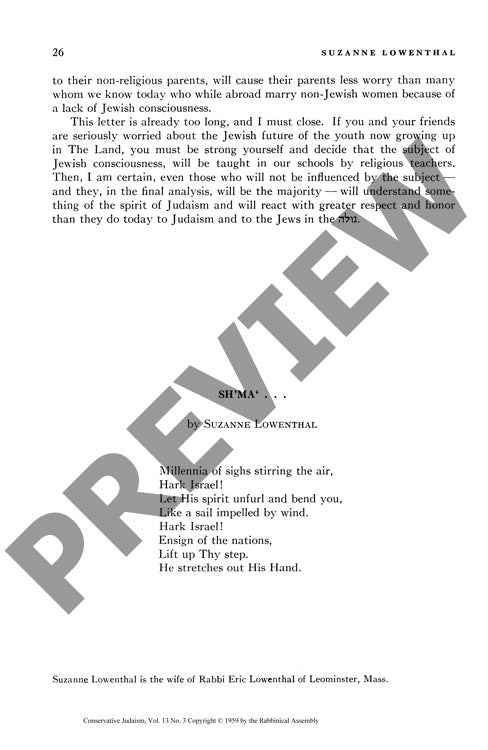Shma Poem
Couldn't load pickup availability
Growing concerns over Jewish identity erosion among Israeli youth in the late 1950s sparked urgent debates about religious education's role in identity preservation. Through analysis of parent-educator correspondence and poetic reflection, a clear pattern emerged: children provided with strong Jewish consciousness education maintained their religious connections even when studying abroad, while those lacking such foundations more frequently married outside the faith. The methodology pairs epistolary analysis of educational recommendations with literary expression, particularly through the poem "Sh'ma," which employs traditional liturgical references to explore divine calling and national identity. Evidence suggests that early religious education acts as a protective buffer against assimilation, benefiting even students who later choose less observant lifestyles. Based on these findings, mandatory Jewish consciousness instruction by religious teachers in Israeli schools emerges as a vital preventive measure. Such systematic integration of Jewish consciousness education within secular curricula would not only foster greater respect for Judaism but also strengthen vital connections between Israeli youth and diaspora Jewish communities, helping preserve Jewish identity across generations despite mounting secularization pressures.

More Information
-
Physical Description
-
Publication Information
Published 1959
ISBN
-
Publication Credits
Suzanne Lowenthal

